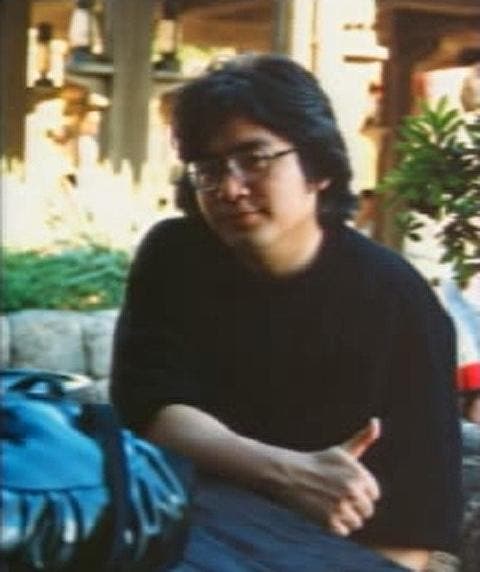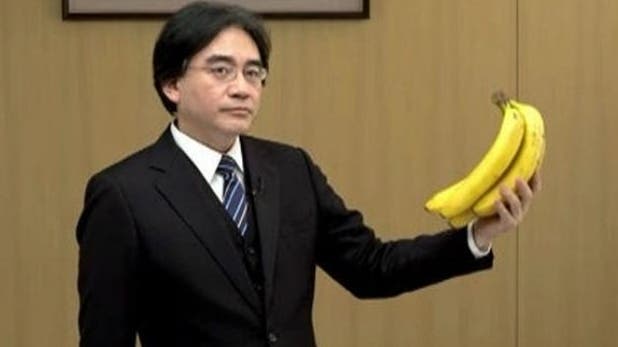Ask Iwata: understanding Nintendo's most charismatic leader
"'Silly' is a lofty compliment!"
In 2015, so many of us mourned the passing of Satoru Iwata at the all-to-young age of 55 as if we'd lost the closest of friends despite never having met. The impact of Nintendo's most charming leader is beautifully illustrated in Ask Iwata, a collection extracted from interviews conducted with friend and frequent collaborator Shigesato Itoi as well as from Iwata's own celebrated interviews with his developers.
Here was a man whose ambition was simply to make everyone happy, something he achieved on a scale that's almost unimaginable: anyone who's ever played a Wii or DS, the phenomenally successful consoles that opened up gaming for all and are perhaps his greatest legacy, will be able to appreciate that.
Ask Iwata's a curious book, although one that ends up just as valuable an insight to Nintendo as something like David Sheff's Game Over or Osamu Inoue's Nintendo Magic, if not more so. This isn't the place to find out rich new detail or gossip about what went on behind those unremarkable office walls in Kyoto during the remarkable era Iwata guided Nintendo through; instead, it's a chance to better understand the man who put those pieces in place as he talks through his philosophies and approach to management.
Some of those approaches are already part of his legend, of course. There's the famous tale of Earthbound, when Iwata was parachuted into Itoi's team as they floundered years into the SNES RPG's development with the threat of cancellation hanging over them. Struggle on and it'd take another two years, came Iwata's advice. Start from scratch, though, and it could be done in six months - and so the decision to scrap so much work was made that bit easier to swallow for Itoi and his team.
Beyond such canny manoeuvres early in his career, though, something more illuminating emerges. Iwata was a manager who believed, deeply and strongly, in people. At HAL Laboratory, his first company, he made a point of meeting with every employee twice a year and letting them speak their mind until they felt they'd said it all; sessions that could last 20 minutes, or could last for over three hours. It speaks to a sense of selflessness, but also to a programmer's attention to detail. How else could you make a decision on behalf of the company without gathering and analysing all the information you can?
Disputes and disagreements were subject to the same logic: if you can't communicate your point of view effectively, your program was wrong, says Iwata. Have a look at the problem from another perspective and recompile, then see if the results are any different. That approach never left him in all his years at Nintendo, no matter what position he had elevated to.
It's why, Iwata says, he stepped in to helm Nintendo's conferences in America, despite acknowledging that English was a weakness, a programmer's logic telling him it makes sense to step in and save figurehead Shigeru Miyamoto so that he might be able to focus on the business of making games. And so Iwata threw himself into this whole new area of learning, picking up skills and confidence along the way until he became an accomplished, charismatic speaker.

In those appearances, there was always an earnestness and silliness that sold his heartfelt enthusiasm so well. Perhaps the best example was Iwata's Wii U unboxing, gingerly done with white gloves as the meticulously turned-out president fumbles his way through the process while constantly apologising. It's daft in the most disarming way. "'Silly' is a lofty compliment!" he writes, and some of that same silliness was there in his Iwata Asks series of interviews, interspersed with his own laughter as he chuckled through conversations driven by his inquisitiveness and enthusiasm. They're some of the finest pieces of games journalism I've ever read.
Ask Iwata is a different kind of read, the majority of what's a fairly slim volume culled from Iwata's own advice and writings; it's sort of a leadership advice book, though such a description doesn't do the warmth and humanity at its core justice. That warmth tips over into something more touching still in a pair of tributes that deliver the book's emotional gut punch, Shigeru Miyamoto giving a personal account of their friendship while Shigesato Itoi is in illustrative form. "Every time Iwata said the word 'happy'," remembers Itoi, "he spread his fingers wide, like he was smiling with both hands. I'll never forget that about him."
"What makes me sad is that if I have a crazy idea over the weekend, there isn't anybody I can tell about it on Monday morning," writes Miyamoto "When I'm eating lunch, he isn't there to say, "I think I've figured out your problem," which leaves me feeling stuck sometimes. I really miss him." We all came to know Iwata as a friend over the years, which was what made that loss so painful back in 2015. Read through the insight and consider the simple drive behind his philosophies offered through his writings in Ask Iwata and I think you'll get to know him that little bit better, and miss him that little bit more.


